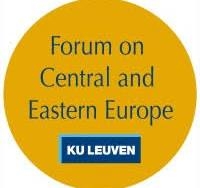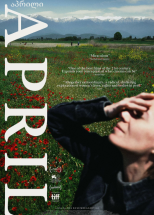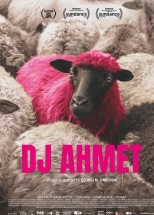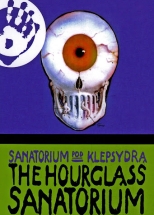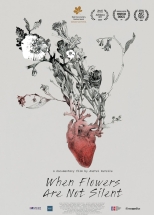Ontdek in oktober al het moois dat Oost-Europese cinema te bieden heeft!
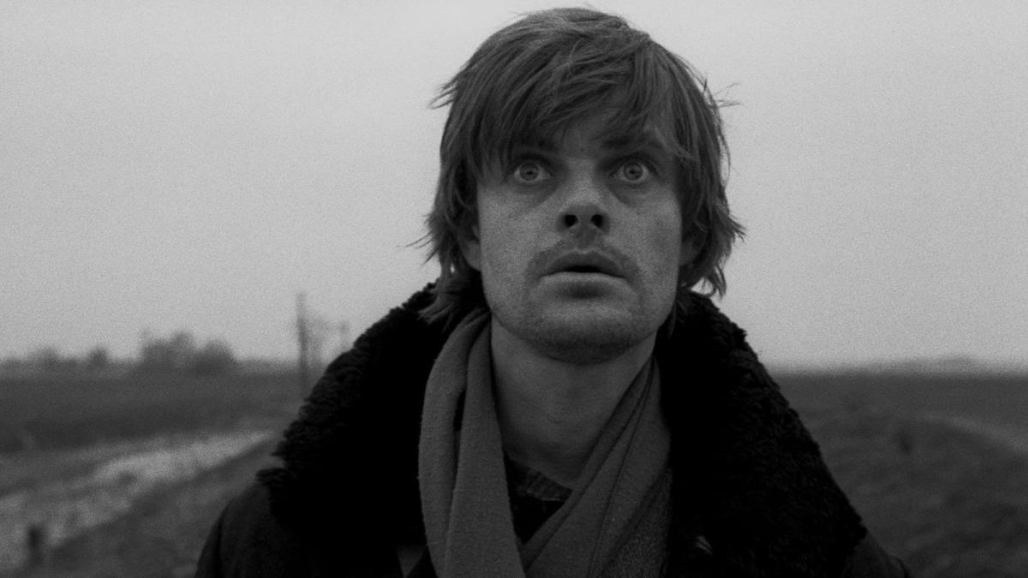
In oktober focussen we bij Cinema ZED met plezier een hele maand op Oost-Europese cinema, in samenwerking met het Forum voor Centraal- en Oost-Europa van de KU Leuven. Een stuk van de wereld dat vaak onderbelicht of onbesproken blijft als we het hebben over de beste films of regisseurs aller tijden, maar absoluut niet terecht.
Op het programma staan recente films, documentaires en niet te onderschatten klassiekers, van Mr. Nobody Against Putin en Timestamp tot Werckmeister Harmonies, de befaamde donker-surrealistische klassieker van cinema-icoon Béla Tarr.
De meeste vertoningen worden voorzien door een inleiding van KU Leuven-professoren die de nodige context en achtergrond zullen geven. Een unieke kans om te komen proeven van Oost-Europese cinema in al haar facetten.
Als CLT-cursist kan je bovendien naar elke film in de reeks voor slechts 9 euro komen.
English version:
In October, Cinema ZED is delighted to focus on Eastern European cinema for a whole month, in collaboration with the Forum for Central and Eastern Europe at KU Leuven. A part of the world that often remains underexposed or unmentioned when we talk about the best films or directors of all time, but this is absolutely unjustified.
The program includes recent films, documentaries, and classics that should not be underestimated, from Mr. Nobody Against Putin and Timestamp to Werckmeister Harmonies, the famous dark surrealist classic by cinema icon Béla Tarr.
Most screenings will be preceded by an introduction by KU Leuven professors who will provide the necessary context and background. A unique opportunity to get a taste of Eastern European cinema in all its facets.
As a CLT student, you can attend any film in the series for just €9.
When Flowers are not Silent
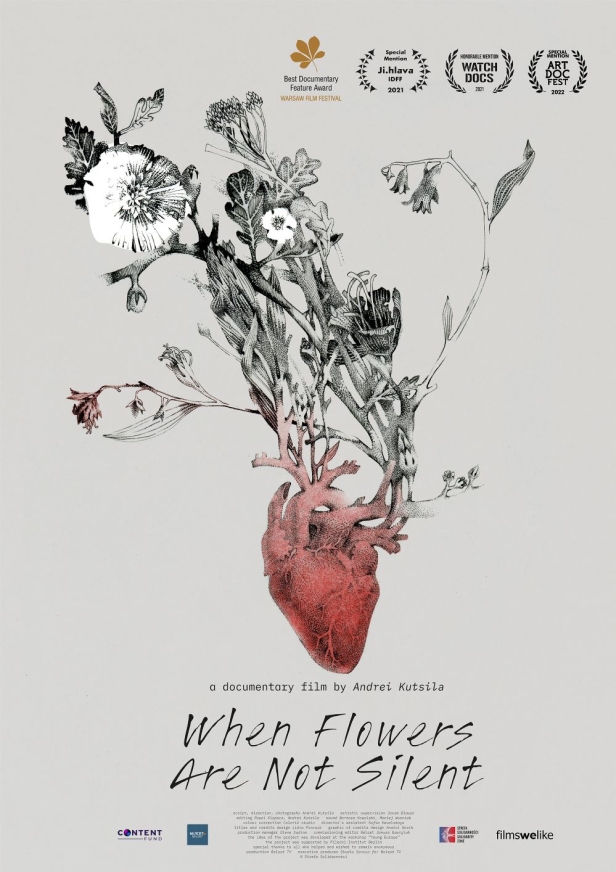
Belarus, 2020. Niet zo ver van hier wordt geschiedenis geschreven. Terwijl een hele natie verenigd opstaat voor haar waarheid en vrije, eerlijke verkiezingen eist, barst politiegeweld los en belanden vreedzame betogers in de gevangenis. Mensen die fysiek en mentaal getraumatiseerd zijn, proberen hun leven voort te zetten. Door de lotgevallen van gewone Wit-Russische families zien we de pijn en de hoop, voelen we de angst én de vastberadenheid van een volk
De film wordt ingeleid door Peter Vermeersch, hoogleraar Politieke studies KU Leuven.
Koop hier alvast je tickets.
English version:
Belarus, 2020. Not far from here, history is being written. While an entire nation stands united for its truth and demands free, fair elections, police violence erupts and peaceful protesters end up in prison. People who are physically and mentally traumatized try to get on with their lives. Through the vicissitudes of ordinary Belarusian families, we see the pain and hope, feel the fear and determination of a people.
The film will be introduced by Peter Vermeersch, professor of Political Studies at KU Leuven.
Buy your tickets here!
DJ Ahmet

De vijftienjarige Ahmet (Arif Jakup) woont in een afgelegen dorpje in Noord-Macedonië, in een conservatieve Yörük-moslimgemeenschap. Na de dood van zijn moeder is hij door zijn strenge vader van school gehaald. Hij moet de schapen hoeden en zorgen voor zijn broertje Naim, die sinds het overlijden geen woord meer heeft gezegd. Ahmet vindt verlossing in zijn elektronische dance muziek en droomt van een carrière als dj. Dan wordt hij verliefd op een meisje dat uit Duitsland is overgekomen omdat ze is uitgehuwelijkt. In de oer-patriarchale gemeenschap lijken Ahmets dromen kansloos, maar met hulp uit onverwachte hoek zet hij door.
Deze film wordt ingeleid door Ana Devic, Universitair hoofddocent sociologie.
Koop hier alvast je tickets.
English version:
Fifteen-year-old Ahmet (Arif Jakup) lives in a remote village in North Macedonia, in a conservative Yörük Muslim community. After his mother's death, his strict father took him out of school. He has to herd sheep and take care of his little brother Naim, who hasn't spoken a word since their mother's death. Ahmet finds solace in electronic dance music and dreams of a career as a DJ. Then he falls in love with a girl who has come over from Germany because she has been arranged to marry. In the deeply patriarchal community, Ahmet's dreams seem hopeless, but with help from an unexpected source, he perseveres.
This film will be introduced by Ana Devic, Associate Professor of Sociology.
Buy your tickets here!
Only the Wind

De 92-jarige Zdzislaw trekt samen met zijn 25-jarige kleindochter op een indrukwekkende reis van 5000 km naar een afgelegen dorp in Kazachstan. Voor hem is het een terugkeer naar de plek waar hij als tiener door de Sovjets werd verbannen tijdens de Tweede Wereldoorlog. Na meer dan zeventig jaar gaat hij opnieuw op zoek naar het land van zijn jeugd – en naar zijn eerste liefde, die hij destijds moest achterlaten. Zijn kleindochter begeleidt hem met toewijding, terwijl ze onderweg ontdekt wat er werkelijk schuilgaat achter de verhalen die ze als kind voor het slapengaan hoorde.
Met deze documentaire openen we de Oost-Europese filmreeks bij Cinema ZED. De film wordt ingeleid door Kris Van Heuckelom, hoogleraar aan de Faculteit Letteren. Na de film is er een nagesprek met de regisseur van de film.
Deze film wordt vertoond met de steun van het Pools Instituut in Brussel.
Koop hier alvast je tickets.
English version:
92-year-old Zdzislaw and his 25-year-old granddaughter embark on an impressive 5,000 km journey to a remote village in Kazakhstan. For him, it is a return to the place where he was exiled by the Soviets as a teenager during World War II. After more than seventy years, he sets out once again in search of the land of his youth—and his first love, whom he had to leave behind at the time. His granddaughter accompanies him with devotion, discovering along the way what really lies behind the stories she heard as a child before bedtime.
This documentary marks the start of the Eastern European film series at Cinema ZED. The film will be introduced by Kris Van Heuckelom, professor at the Faculty of Arts. After the film, there will be a discussion with the director.
This film is shown with the support of the Polish Institute in Brussels.
Buy your tickets here!
Werckmeister Harmonies

Hoe dun het vernislaagje menselijke beschaving kan zijn, demonstreert Tarr in zijn klassieker Werckmeister harmóniák, waarin een circus neerstrijkt in een Hongaars provinciestadje. De bewoners raken in de ban van een geheimzinnige prins die het stadje meesleurt in een collectieve vernietigingsroes. Met Werckmeister harmóniák voltooide Béla Tarr de trilogie waartoe ook Damnation (1988) en Sátántangó (1994) behoren; de twee eerdere films kwamen eveneens tot stand in samenwerking met de Hongaarse romanschrijver en scenarist László Krasznahorkai.
De film wordt ingeleid door Sonja Simonyi, een onafhankelijke wetenschapper die zich bezighoudt met de audiovisuele culturen van socialistisch Oost-Europa. Ze voltooide haar proefschrift aan de afdeling Filmstudies van de New York University en haar artikelen over zowel populaire als experimentele films zijn verschenen in een aantal kunsttijdschriften, verzamelbundels en wetenschappelijke tijdschriften.
Koop hier alvast je tickets.
English version:
Tarr demonstrates how thin the veneer of human civilization can be in his classic film Werckmeister harmóniák, in which a circus descends on a small Hungarian town. The residents fall under the spell of a mysterious prince who drags the town into a collective frenzy of destruction. With Werckmeister harmóniák, Béla Tarr completed the trilogy that also includes Damnation (1988) and Sátántangó (1994); the two earlier films were also made in collaboration with the Hungarian novelist and screenwriter László Krasznahorkai.
The film will be introduced by Sonja Simonyi, an independent scholar specializing in the audiovisual cultures of socialist Eastern Europe. She completed her dissertation at New York University's Department of Film Studies, and her articles on both popular and experimental films have appeared in a number of art magazines, anthologies, and academic journals.
Buy your tickets here!
Timestamp
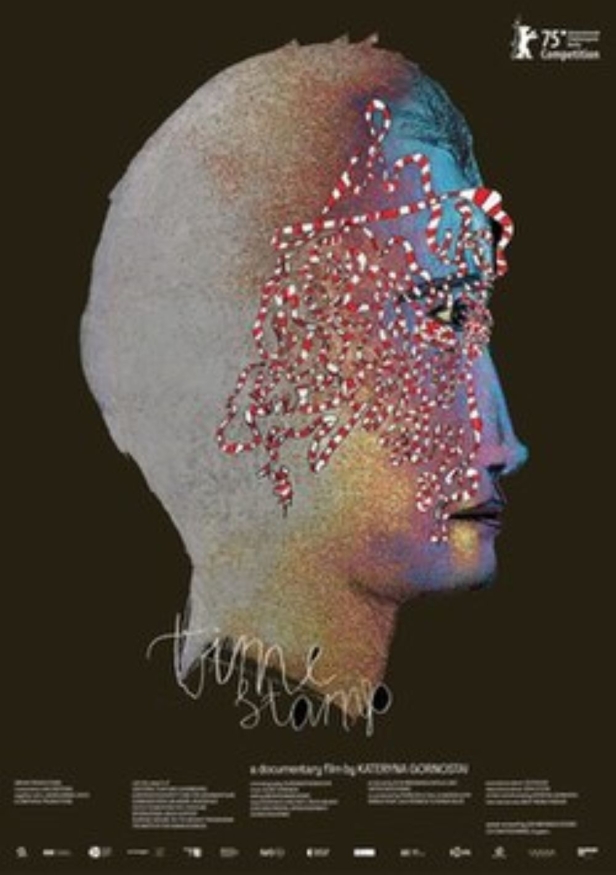
Welke stempel laat oorlogstijd achter op het schoolleven? Op veelzeggende wijze wordt er een jaar vastgelegd in het zo normaal mogelijke bestaan van leerlingen en leerkrachten in Oekraïne. Gericht op een betere toekomst strijden zij elke dag hoopvol verder voor het fundamentele recht op onderwijs. “De pijn van vernietiging en heldere hoop ontmoeten elkaar hier”, stelt een leerling in haar afstudeerspeech tijdens de online proclamatie. Geen grootse gebaren, geen ultiem statement, maar een doorvoel portret van gewone mannen, vrouwen en kinderen die, ondanks de dreiging van totale vernietiging, elke dag opnieuw hun best doen.
De vertoning van 20/10 wordt ingeleid door Daryna Zhyvohliadova, projectcoördinator van HERitage UKRaine Project, KU Leuven.
Koop hier alvast je tickets.
English version:
What mark does wartime leave on school life? In a telling way, a year is recorded in the as normal as possible existence of students and teachers in Ukraine. Focused on a better future, they continue to fight hopefully every day for the fundamental right to education. “The pain of destruction and bright hope meet here,” says a student in her graduation speech during the online proclamation. No grand gestures, no ultimate statement, but a heartfelt portrait of ordinary men, women, and children who, despite the threat of total destruction, do their best every day.
The screening on October 20th will be introduced by Daryna Zhyvohliadova, research assistant at the Faculty of Arts, specifically History of Modernity and Society.
Buy your tickets here!
The Hourglass Sanatorium

Een surrealistische parel uit Polen, losjes gebaseerd op het werk van Bruno Schulz. Een jongeman bezoekt het sanatorium waar zijn vader diens laatste jaren heeft versleten. Daar aangekomen blijkt een chronologisch tijdsbeleving geen optie. The Hourglass Sanatorium is een vervreemdende, visueel prikkelende mix van jeugdherinneringen, dromen en geschiedkundige reflectie. De film werd destijds verboden in communistisch Polen, maar werd over de grens gesmokkeld en won de Juryprijs in Cannes.
Deze film wordt ingeleid door Kris Van Heuckelom, hoogleraar aan de Faculteit Letteren.
Deze film wordt vertoond met de steun van het Pools Instituut in Brussel.
Koop hier alvast je tickets.
English version:
A surrealistic gem from Poland, loosely based on the work of Bruno Schulz. A young man visits the sanatorium where his father spent his final years. Once there, he discovers that a chronological perception of time is not an option. The Hourglass Sanatorium is an alienating, visually stimulating mix of childhood memories, dreams, and historical reflection. The film was banned in communist Poland at the time, but was smuggled across the border and won the Jury Prize at Cannes.
This film will be introduced by Kris Van Heuckelom, professor at the Faculty of Arts.
This film is shown with the support of the Polish Institute in Brussels.
Buy your tickets here!
Mr. Nobody Against Putin

Meester Pavel is - zo zegt hij zelf aan het begin van de film - een ‘nobody’. Hij is in elk geval niet de persoon die je spontaan zou uitkiezen als de verzetsheld die het durft op te nemen tegen de almachtige en genadeloze Vladimir Poetin. En toch durft deze onbelangrijke, maar bijzonder innemende, leraar op een lagere school in Rusland zich op zijn eigen manier te verzetten tegen de oprukkende nationalistische propaganda.
De vertoning van 23/10 wordt ingeleid door Peter Vermeersch, hoogleraar politieke studies aan de Faculteit Sociale Wetenschappen van de KU Leuven.
Koop hier alvast je tickets.
English version:
Master Pavel is – as he himself says at the beginning of the film – a ‘nobody’. In any case, he is not the person you would spontaneously choose as the resistance hero who dares to take on the almighty and merciless Vladimir Putin. And yet this insignificant but exceptionally engaging primary school teacher in Russia dares to resist the advancing nationalist propaganda in his own way.
The screening on October 23 will be introduced by Peter Vermeersch, professor of political studies at the Faculty of Social Sciences at KU Leuven.
Buy your tickets here!
April

Nina werkt als gynaecologe in een klein ziekenhuis in de Georgische provincie. Wanneer bij een bevalling een pasgeboren baby sterft, komt Nina onder verdenking te staan van nalatigheid — vooral omdat de gemeenschap geruchten verspreidt dat ze illegale abortussen uitvoert. De film legt maatschappelijke taboes bloot: over schuld en verantwoordelijkheid, over het patriarchaat, en over de kwetsbaarheid van vrouwen in conservatieve omgevingen. April won de Special Jury Prize 2024 op het filmfestival van Venetië.
De film wordt ingeleid door Luka Bedoshvili, Doctoraatsstudent en FWO fellow met onderzoek naar post-conflictcinema in de Zuid-Kaukasus.
Koop hier alvast je tickets.
English version:
Nina works as a gynecologist in a small hospital in the Georgian province. When a newborn baby dies during childbirth, Nina comes under suspicion of negligence—especially because the community spreads rumors that she performs illegal abortions. The film exposes social taboos: about guilt and responsibility, about patriarchy, and about the vulnerability of women in conservative environments. April won the Special Jury Prize 2024 at the Venice Film Festival.
The film will be introduced by Luka Bedoshvili, PhD student and FWO fellow researching post-conflict cinema in the South Caucasus.
Buy your tickets here!
